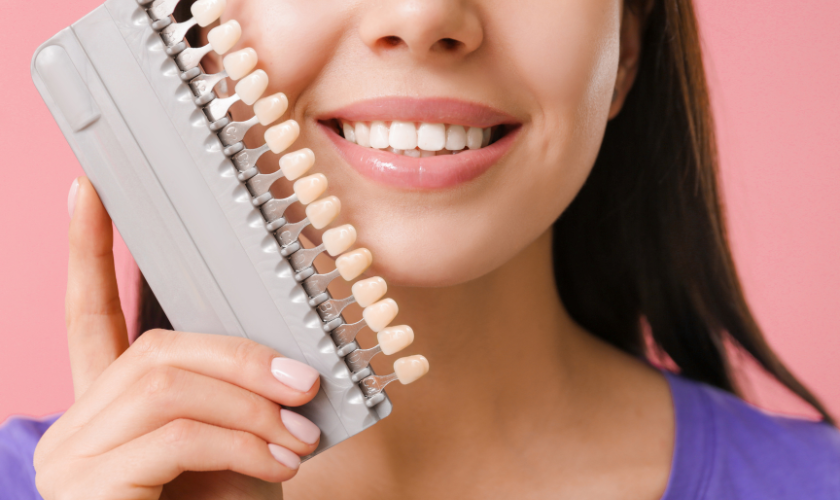When it comes to enhancing your smile, veneers and crowns are two popular solutions that offer stunning results. But one question often arises: how long do they last? Whether you’re dealing with chipped teeth, discoloration, or structural damage, knowing the longevity of each option can help you make a smart and lasting choice for your smile.
Let’s dive into the lifespan of dental veneers vs. crowns—and what you need to know before sitting in the dentist’s chair.
What’s The Difference Between Veneers and Crowns?
Before comparing longevity, it’s important to understand what each treatment does.
- Veneers are thin, custom-made shells placed on the front surface of teeth. They’re typically made from porcelain or composite resin and are ideal for cosmetic corrections—like closing gaps, whitening discolored teeth, or fixing minor chips.
- Crowns (also known as caps) cover the entire tooth. They’re usually recommended when a tooth is significantly damaged or decayed and needs structural reinforcement.
In short, veneers are mostly cosmetic, while crowns offer both cosmetic and restorative benefits.
How Long Do Dental Veneers Last?
Porcelain veneers in Colleyville are built for beauty and durability. On average, they last 10 to 15 years, but with proper care, they can even stretch beyond 20.
Composite veneers, which are less expensive and quicker to apply, typically last 5 to 7 years before they may need replacing or touch-ups.
The lifespan of your veneers depends on:
- Your oral hygiene habits.
- Avoiding habits like nail biting or chewing ice.
- Regular dental checkups.
- The material used.
How Long Do Dental Crowns Last?
Crowns are known for their durability and function. A typical dental crown lasts between 10 to 15 years, but like veneers, some can go up to 25 or 30 years with excellent maintenance.
Different materials have different life expectancies:
- Porcelain-fused-to-metal crowns: 10–15 years.
- All-ceramic or all-porcelain crowns: 10–20 years.
- Gold crowns: Up to 30 years.
Crowns are especially long-lasting when they’re used on molars or teeth that experience a lot of chewing pressure.
According to the American College of Prosthodontists, approximately 2.3 million implant-supported crowns are made annually in the U.S., and many of those last well over 15 years with proper care.
Which Option Lasts Longer?
- When comparing porcelain veneers with porcelain crowns, their average lifespan is quite similar—both typically last around 10 to 15 years with proper care.
However, crowns tend to last longer, especially when used on teeth that endure more pressure or have been structurally compromised.
- Veneers are primarily designed for cosmetic purposes and are typically made of porcelain or composite material. They only cover the front surface of the tooth, making them ideal for enhancing the appearance of your smile.
Crowns, on the other hand, offer both cosmetic and structural support. They are made from a variety of materials, including porcelain, metal, or a combination of both, and cover the entire tooth to restore its shape, strength, and function.
This makes crowns a more durable option for teeth that are damaged, decayed, or weakened.
How To Make Them Last Longer?
No matter which option you choose, longevity comes down to aftercare. Here are some tips to extend the life of your veneers or crowns:
- Brush and floss daily to prevent plaque buildup.
- Avoid hard foods, like popcorn kernels or ice.
- Wear a mouthguard if you grind your teeth at night.
- Visit dentists regularly for cleanings and checkups.
- Avoid using your teeth as tools (no opening bottles with your smile!).
So… Which Should You Choose?
If you’re looking for a quick cosmetic fix for front teeth—veneers are likely the better option. But if your tooth has serious damage, a crown might be your best bet. Crowns offer more protection and can sometimes outlast veneers, especially when used in high-pressure areas.
Discussing your needs with our dentist will help you make the most informed choice.
It’s All About Fit and Function!
While both dental veneers and crowns can dramatically enhance your smile, they each come with their own strengths. Veneers excel in aesthetics, while crowns win in strength and longevity—especially when dealing with more extensive damage.
No matter your choice, a beautiful, healthy smile is within reach when you invest in high-quality materials and consistent care. Want your dental work to go the distance? It all starts with choosing the right option—and maintaining it like gold.


